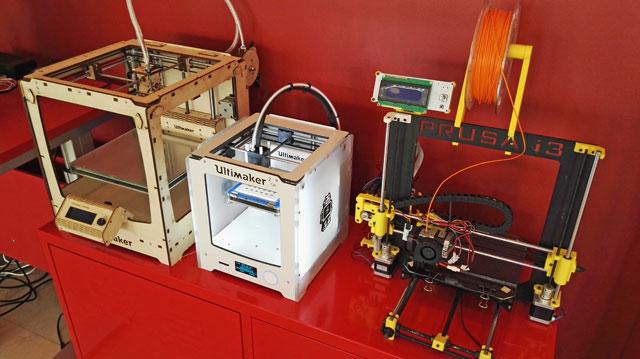You are here
Missing out on an opportunity
May 25,2016 - Last updated at May 25,2016
A law was recently passed in Jordan that effectively bans the use of 3D printers despite the technology being hailed by many as one of the most promising innovations to emerge since the popularisation of the Internet.
Paul Markillie, a writer for The Economist, and Jeremy Rifkin, an adviser to the heads of the European Commission and the European Union, suggested that 3D printing might signal the start of the third industrial revolution.
Venture capitalists and industrialists have also taken note, investing billions of dollars in companies that produce hardware and software for the technology, which essentially turns digital models into solid objects by building them up in layers using a wide range of materials.
The Netherlands has used 3D printing to construct bridges in Amsterdam and, more recently 3D printed a fully formed house from scratch.
A Chinese company managed to print 10 homes in less than one day, at the cost of $5,00 each. Meanwhile, start-ups in the US used 3D printers to construct stents, and are now experimenting with 3D printed organs that could potentially save hundreds of thousands of lives.
General Motors used them for the rapid prototyping of its new concept cars, and a company called Urbee 2 has gone a step further by managing to entirely print automobiles.
The applications of the technology are essentially endless.
So why is this technology banned in Jordan?
In 2011, a US-based company 3D printed a small hand-held pistol that could fire a single bullet and was made, 95 per cent, from plastic.
This gave the Kingdom all the reasons it needed to ban the technology outright, apparently ignoring the fact that purchasing a 3D printer and the necessary materials is prohibitively costly and requires quite a bit of technological know how.
It is akin to banning cars to avoid having drivers under the influence cause damage to other persons or property.
The future of 3D printing in Jordan does not look promising.
We stand to miss out on a tremendous opportunity to create jobs and industry in a nation whose biggest resource is its human capital unless there is a serious effort to curb the red tape currently in place.
Centralising decision making, holding accountable the government agencies responsible for managing the process and providing guidance to companies attempting to navigate bureaucracy might be a start.
Until then, however, we will be cutting off our nose to spite our face.
Yousef Nassar,
Amman
Related Articles
AMMAN — The industry of 3D printing is slowly growing around the world but still faces problems in Jordan, as individuals are banned from ow
It’s a bit like hybrid cars, a good compromise between the too expensive fuel consumption and the not-yet-perfected fully electric car.
So it’s understood, we are all making an effort to protect the trees and save the planet by printing less and keeping information in digital

















